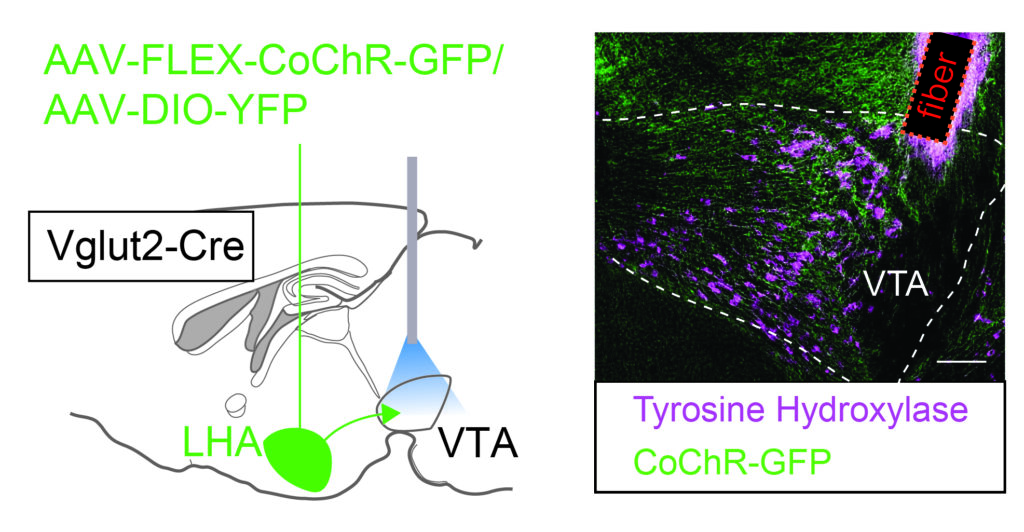
Does stress eating sound familiar? Stress can increase the intake of high caloric food, which can contribute to obesity and eating disorders, but the neurobiology underlying this process is not clear. In a new paper out in Nature Communications the lab of Frank Meye describes how stress changes synaptic strength from the Lateral Hypothalamus (LHA) to the Ventral Tegmental Area (VTA) midbrain dopamine system to drive binge eating behavior.
First author Louisa Linders observed in mice that social stress resulted in binge-like intake of high caloric fat. Calcium recordings done by Lefkothea Patrikiou and Evelien Schut showed that LHA glutamatergic neurons controlling the VTA were responsive to such social stress, as well as to fat intake. Using patch-clamp electrophysiological approaches, Louisa went on to show that social stress strengthened the glutamatergic synaptic connection from the LHA to the VTA. Optogenetic tweaking of the strength of these LHA-VTA synapses proved critical in regulating whether stress eating took place. Overall, this paper highlights an important causal role of stress-induced plasticity in the synaptic connection from the lateral hypothalamus to the midbrain dopamine reward system for stress-driven food intake.
“I’m excited that we can share our findings on how stress changes synaptic function to causally contribute to stress eating.” Louisa Linders
The work was performed in the Translational Neuroscience Dept of the UMC Utrecht Brain Center. Check out the tweet by Frank Meye as well.
We look forward to seeing the upcoming work from the Meye group!